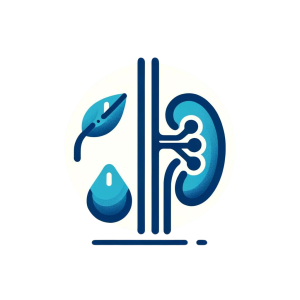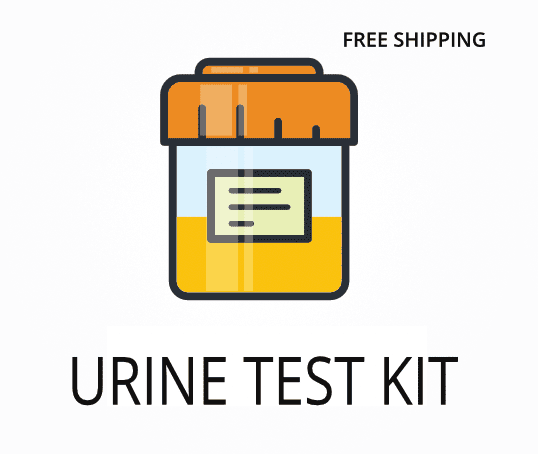 Understanding Your StoneRisk Diagnostic Profile
Understanding Your StoneRisk Diagnostic Profile
The StoneRisk Diagnostic Profile, often referred to as Kidney Stone Analysis, is a critical test for anyone who has experienced kidney stones. This test helps identify the specific types of minerals and other substances that form the stones, providing insights into why they are forming.
Why Is This Test Important?
Understanding the composition of kidney stones is essential for both traditional medicine and functional medicine. It helps doctors and patients tailor treatment strategies to prevent future stones. This test is particularly important if you are prone to recurrent stones or have a family history of kidney stones.
Reasons to Consider the StoneRisk Diagnostic Profile
If you are looking to reduce your risk of future kidney stone episodes, the StoneRisk Diagnostic Profile can provide you with the necessary information to adjust your diet, hydration, and medication. It’s a proactive step towards managing your health and preventing the discomfort associated with kidney stones.
Labs Included in Your Order
| Test Name | Reference Ranges | Significance |
|---|---|---|
| CALCIUM, 24 HOUR URINE | <250.0 mg | Elevated calcium can increase the risk of kidney stones. Monitoring helps prevent stone formation. |
| OXALATE, 24 HOUR URINE | <45 mg | High oxalate levels can contribute to kidney stone formation. Diet adjustments can help manage it. |
| URIC ACID, 24 HOUR URINE | <700 mg | Elevated uric acid may indicate gout risk or kidney issues. Proper hydration can help reduce levels. |
| CITRIC ACID, 24 HOUR URINE | >320 mg | Low citric acid may increase kidney stone risk. Citrate supplements or diet changes may help. |
| PH URINE | 5.5-7.0 | pH balance affects kidney stone risk. Acidic urine can increase stone formation. |
| TOTAL URINE VOLUME | >2.00 L | Higher urine volume reduces kidney stone risk. Drinking enough fluids is essential. |
| SODIUM, 24 HOUR URINE | <200 mEq | Excess sodium increases calcium loss, contributing to kidney stones. Reducing salt intake can help. |
| SULFATE, 24 HOUR URINE | <30 mmol | Sulfate levels help assess protein metabolism. High levels may indicate excessive protein intake. |
| PHOSPHORUS, 24 HOUR URINE | <1100 mg | Elevated phosphorus may indicate kidney dysfunction or dietary imbalance. |
| MAGNESIUM, 24 HOUR URINE | >60.0 mg | Magnesium helps prevent kidney stones. Low levels may increase stone risk. |
| BRUSHITE | <2.00 | High brushite supersaturation increases kidney stone risk. Proper hydration can help. |
| CREATININE URINE | 800-2000 mg | Creatinine reflects kidney function. Low levels may suggest muscle loss or kidney issues. |
StoneRisk Diagnostic Profile FAQ
What is the StoneRisk Diagnostic Profile for?
This profile is designed to analyze the chemical composition of urine to help understand the causes of kidney stone formation and prevent future occurrences.
What do low and high levels mean?
High levels of certain components like calcium or uric acid can indicate an increased risk of kidney stone formation. Low levels of elements like citrate or magnesium might increase stone risks as well.
What are the signs and symptoms of kidney stone issues?
Common symptoms include severe pain in the back or side, nausea, vomiting, and sometimes blood in the urine or urinary urgency.
How often should I retest?
It’s recommended to retest periodically as advised by your healthcare provider, especially if you’ve made changes in your diet or treatment plan based on previous test results.
How accurate is the test?
This test uses advanced technologies to accurately measure the chemical components of urine that contribute to stone formation, providing reliable results.
Are test results private and confidential?
Receive test results securely on TrueHealthLabs.com under ‘My Account.’ It’s critical that you share them with your physician. Results may be disclosed to health authorities only if legally mandated, e.g., for STDs or COVID-19. Review our privacy policy for more details.
Important Notes:
-
- The test kit must be picked up and returned to the draw station.
- The test cannot be performed for those who are below 14 years old.
Medical Review Board
Reviewed by Jeff Donohue M.D. from Body Logic and Brady Hurst DC, CCCN. Written by True Health Lab’s team of editorial health contributors.
Disclaimer: This information is for educational purposes only and not intended as medical advice. Consult your healthcare provider for personalized guidance.
Why Customers Trust True Health Labs – What People are saying
Also rated 4.6 out of 5 based on 3452 ShopperApproved reviews- See all TrueHealthLabs.com reviews.





